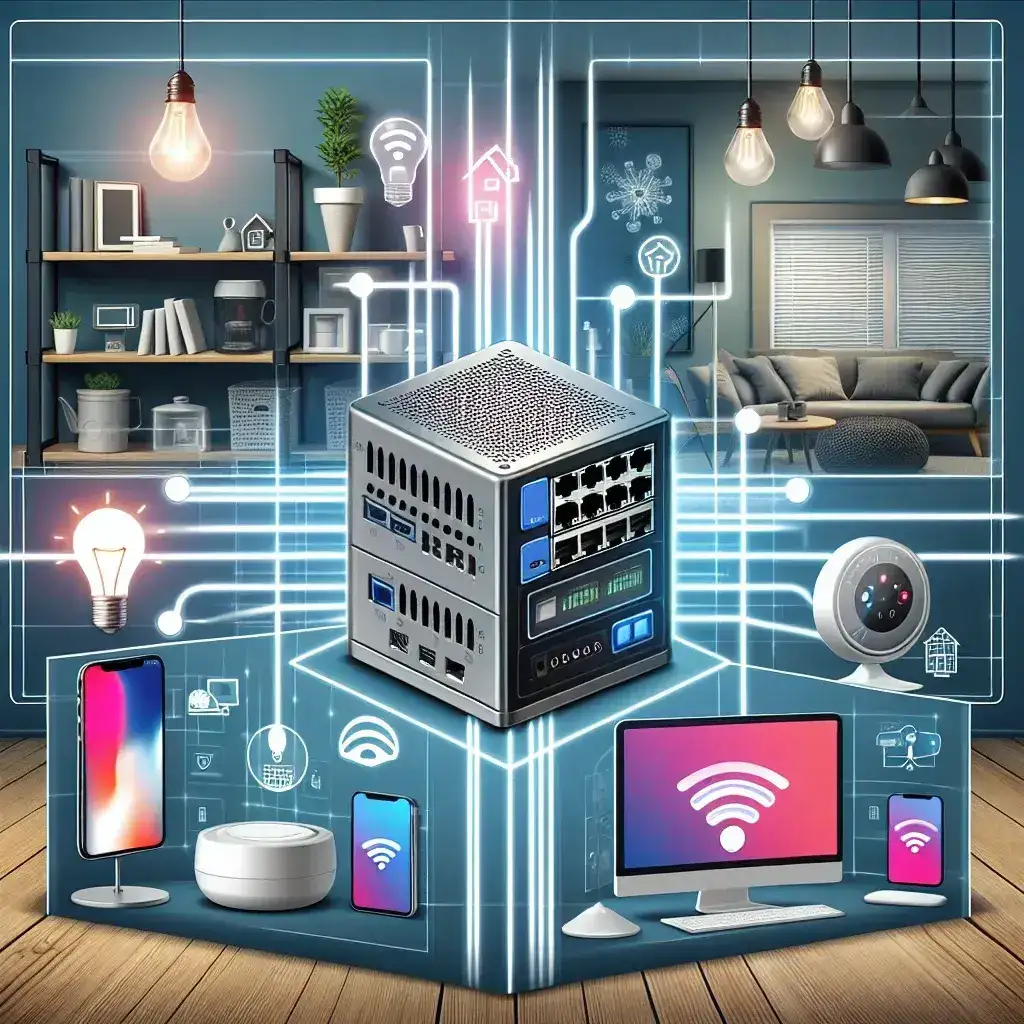The advent of smart home technology has revolutionized the way we interact with our living spaces. With an increasing number of devices connected to networks, the need for a centralized management system becomes more critical. This is where device servers come into play. But can a device server be used in a smart home setup? The simple answer is yes. Device servers offer numerous benefits that make them ideal for smart home applications, including centralized control, enhanced security, and improved efficiency.
What is a Device Server?
A device server, often referred to as a terminal server, allows you to connect serial, USB, and Ethernet-enabled devices to a network, enabling remote management and data collection. These servers convert data from devices into formats that can be accessed and managed over a network.
| Feature | Functionality |
|---|---|
| Centralized Control | Allows for the management of multiple devices from a single interface. |
| Enhanced Security | Provides robust security features to protect data and devices. |
| Remote Access | Enables control and monitoring from remote locations. |
| Data Logging | Collects and stores data for analysis. |
How Device Servers Enhance Smart Home Setups
Centralized Management
One of the most significant advantages of using a device server in a smart home setup is centralized management. With a device server, you can control all connected devices from a single interface, simplifying the process of managing multiple gadgets.
Enhanced Security
Security is a top concern in smart home technology. Device servers offer advanced security features, such as encryption and user authentication, ensuring that your devices and data remain secure.
Remote Access and Monitoring
Device servers enable you to access and control your smart home devices from remote locations. Whether you are at work or on vacation, you can monitor and manage your home’s systems, enhancing convenience and peace of mind.
Data Logging and Analysis
Data logging is another crucial feature of device servers. They can collect and store data from various devices, which can be analyzed to optimize performance and identify potential issues before they become significant problems.
Implementation Challenges and Solutions
Integration with Existing Systems
Integrating a device server into an existing smart home setup can be challenging, primarily if the devices and systems were not initially designed to work together. However, many modern device servers offer compatibility with a wide range of devices, easing the integration process.
Initial Setup and Configuration
The initial setup and configuration of a device server can be complex, requiring technical expertise. To mitigate this, many device servers come with user-friendly interfaces and detailed documentation to guide users through the setup process.
Network Requirements
Device servers rely on a stable and robust network connection to function effectively. Ensuring that your home network is up to par is crucial for the successful implementation of a device server.
Future Trends and Developments
Increased Compatibility
As smart home technology continues to evolve, we can expect device servers to become even more compatible with various devices and systems, facilitating easier integration and management.
Enhanced Security Features
With the rising concerns over cybersecurity, future device servers are likely to incorporate more advanced security features, offering better protection for smart home setups.
AI and Machine Learning
The integration of AI and machine learning in device servers could provide more intelligent and efficient management of smart home systems, allowing for predictive maintenance and more personalized user experiences.
Conclusion
In conclusion, device servers play a pivotal role in optimizing smart home setups. They offer centralized control, enhanced security, remote access, and data logging capabilities, making them indispensable for modern, connected homes. While there may be some challenges in integration and setup, the benefits far outweigh the drawbacks. As technology advances, device servers will only become more integral to smart home systems, providing even greater levels of convenience, efficiency, and security.

